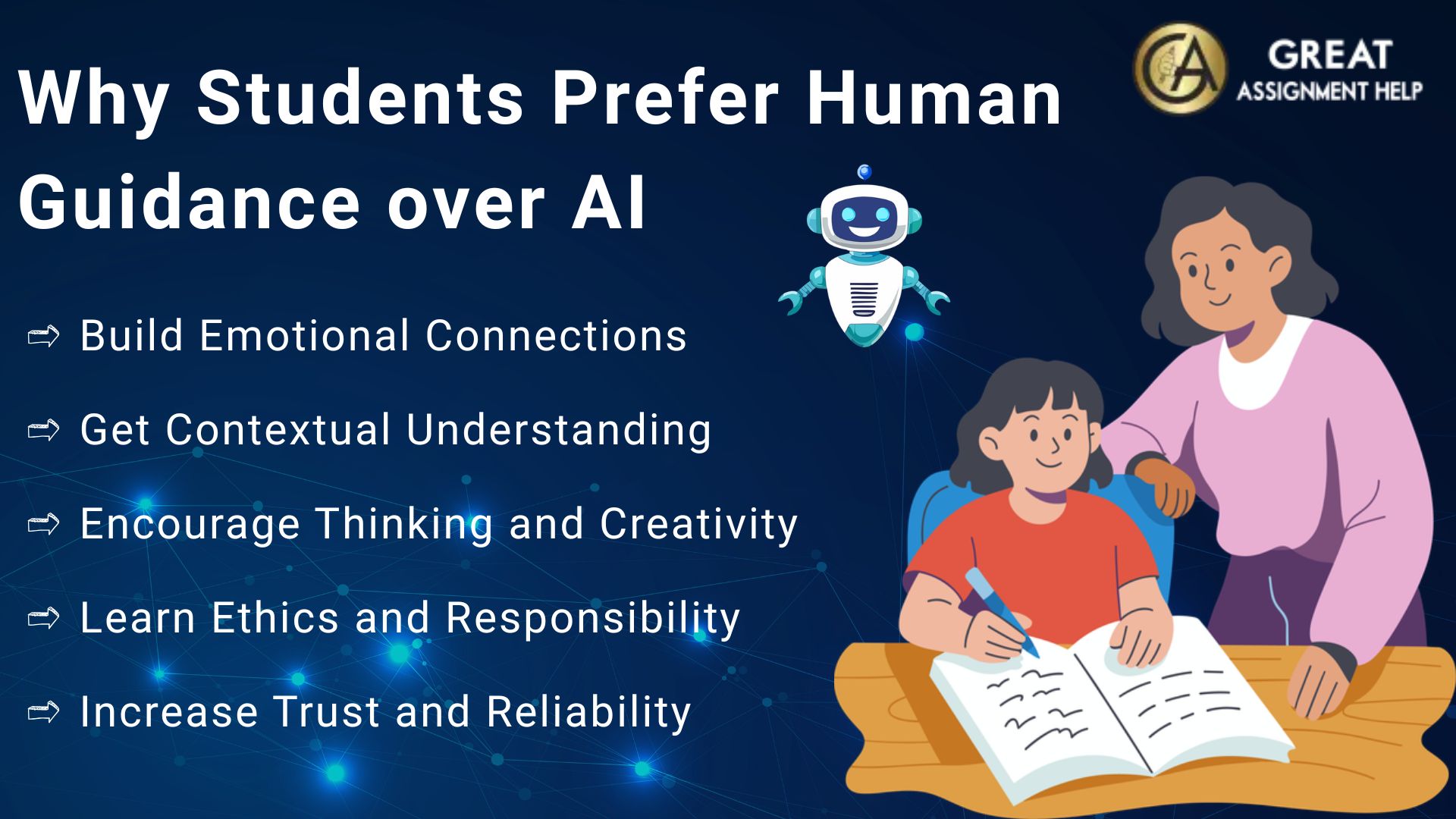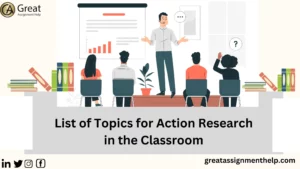AI cheating is shaping student life by making assignments easier and faster to complete. While it saves time, it challenges academic honesty, reduces critical thinking, and shifts reliance from personal effort to technology. This transformation affects learning habits, campus culture, and the way students approach education.
After the arrival of advanced technology like Artificial Intelligence (AI), the way students study and complete their assignments has changed quickly. In recent times, AI tools have made learning easier and faster, but they have also led to a new type of cheating known as AI cheating in the academic field. Mainly, because of AI, the majority of universities and colleges are seeing big changes in how students behave, which worries teachers, administrators, and students themselves. If you are curious to understand how AI is affecting honesty in academics, then read this blog. Here, we have also discussed why students still rely on academic guidance from teachers and assignment experts and what these changes could mean for the future of education.
How AI is Shaping College Learning
AI tools are no longer confined to academic research labs or technology companies but find widespread use in education. Particularly, such AI-powered academic tools can help students to correct grammar, write essays, prepare source code, and solve problems in STEM subjects. What is more, to make students’ lives easier in completing assignments with as little effort as possible, certain tools like ChatGPT, among others, also provide instant answers.
But this convenience comes at a price. AI-assisted cheating is not always a question of laziness; sometimes, it is just a question of time. Several students use AI because they have to fulfill tight deadlines. In addition, services offering AI Assignment Help are gaining more popularity due to their speed and automation in helping students produce polished work. This increasingly indicates that students rely on technology rather than cultivate skills and critical thinking themselves.
The Impact of AI on Academic Integrity
Academic integrity is facing new challenges. In the past, colleges used plagiarism checkers and strict exams to ensure honesty. Now, AI tools can create original work that is tough to detect. Unlike traditional cheating, AI-generated assignments can look real and appear to be a student’s own work.
This has led to debates among teachers about what is considered cheating with AI. Is it wrong to use AI as a guide, or is it only AI cheating when it does all the work? Particularly, to maintain academic integrity, educational institutions are now trying new approaches, such as creating assignments that AI cannot easily solve and teaching students about AI use. By understanding how AI affects learning, educators can help students succeed while keeping fairness in the classroom.
Why Students Prefer Human Guidance over AI

While AI may be able to do so many things, most students still appear to lean on human mentorship for aspects of learning. Compared to AI, a teacher or mentor may provide detailed explanations, advice suitable to the student’s situation, and even emotional support. In addition, professors or tutors can observe minor mistakes, explain realistic consequences, and foster curiosity-all of which contribute to deeper learning.
Here, let us see why students would want to seek assignment help or academic support from experts instead of using AI tools:
Build Emotional Connections
Teachers and mentors can connect with the students emotionally. They also understand the stress and challenges faced by the students and give encouragement, therefore helping them to move along. AI cannot feel empathy, hence making human guidance more comforting and reliable.
Get Contextual Understanding
Teachers will have to vary their guidance according to each student’s background, learning style, and classroom needs. AI, though fast, will usually give general answers that will most of the time not address a student’s specific situation or learning gaps.
Encourage Thinking and Creativity
Teachers will engage students in critical thinking and creativity by helping students to analyze, question, and come up with new ideas. AI may propose solutions, but it rarely encourages that flexible thinking which is required for deep learning or original ideas.
Learn Ethics and Responsibility
Teachers will instruct students regarding ethical academic behavior and the responsibilities associated with the creation of knowledge. Moreover, they will be able to help students understand why honesty is important. But AI cannot teach independently.
Increase Trust and Reliability
Students normally rely on trustworthy teachers or professional assignment writing services for accurate information and valuable feedback. Also, this would help them feel certain that their work met academic standards. Yet, AI-generated content can sometimes be wrong or unclear, hence less reliable.
Why Students Turn to AI Cheating
The temptation towards AI cheating arises from the desire to succeed with minimal effort. Students often face heavy workloads and tight deadlines, which adds pressure to perform while managing other responsibilities. This surely makes it easier for them to misuse the power of AI. While such shortcuts may help gain good grades quickly, they will hurt in the long run and render the students unprepared for challenges ahead. But to avoid AI cheating, students can approach a reliable service provider like Great Assignment Help and get expert support. This would assure students of getting fast, quality solutions that are worthy of securing top grades.
How Colleges Prevent AI Cheating
Colleges are working on ways to prevent AI-related cheating. Some are employing the use of AI-detection tools, while others are changing assignments to focus on critical thinking instead of memorization. Oral exams, projects, and group work are also gaining favor because they make it harder to misuse AI.
Rules are not easy to enforce because AI technology develops more quickly than school policies. Teachers need to prevent unethical use without giving up on AI in the process as a useful tool to help students learn. Some institutions even employ AI as a teaching assistant to direct students and guarantee honesty in their work.
Future of Education in the AI Era
AI is revolutionizing higher education. It can accelerate learning, customize to a particular individual, and make it easier to access than ever before. Still, it also raises many questions concerning ethics, accountability, and the effort put in. Students can use AI as a tool that supports them in their learning, and not replacing thinking.
With the increasing sophistication of AI tools, one of the challenges facing schools is how to train students to use technology responsibly while retaining important skills such as critical thinking. The addition of AI lessons to the curriculum, along with promoting honesty in assignments, will generally contribute to better preparation for students in a future where AI features prominently in education.
Conclusion
AI is changing student life. It challenges traditional notions of academic integrity but also offers the most advanced learning tool. AI cheating demonstrates both the potential benefits and risks of using technology in education. Therefore, students, teachers, and schools need to collaborate with regard to responsible AI use. Merging human mentorship with technology can keep learning meaningful, engaging, and ethical in an AI-dominated future. Instead of AI, students can get human guidance in developing critical thinking, creativity, and ethical awareness. If you need academic expert support on any subject, then utilize our personalized Assignment Help services.
FAQs
1. Does completing assignments by using AI treated as cheating?
It is dependent on the context and the academic regulations that govern it. Generally speaking, it is fine to use AI for ideas or guidance, but in most colleges, it is considered unethical to pass off work as your own without giving any credit.
2. How do colleges detect AI-generated content?
These colleges employ the use of AI detection tools to find out. Also, to reduce the chances of misuse with AI, colleges create assignments that require critical thinking, conduct oral exams, and assign project-based tasks.
3. Can AI improve learning instead of promoting cheating?
AI can enhance learning if used responsibly. It can explain topics to students, give them feedback, and provide practice exercises that will help them learn more. Normally, AI works best as a support tool alongside guidance from human teachers.



